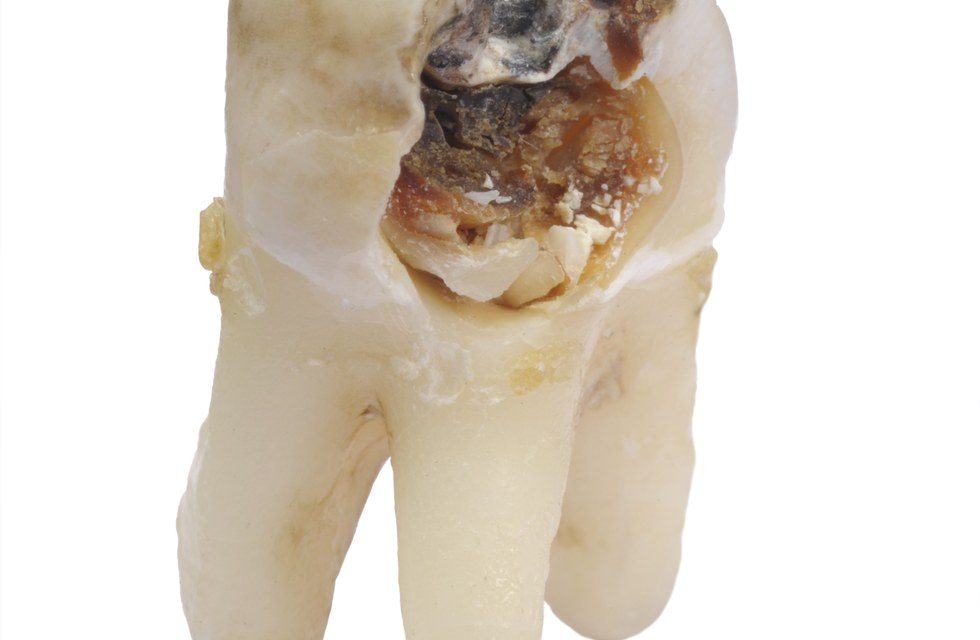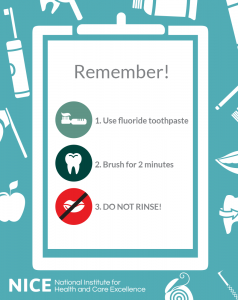

ITV News reported about rotting teeth this week after a senior dentist gave an interview to the Sunday Times.
Dean of the Royal College of Surgeons’ dental faculty Professor Nigel Hunt told the Sunday Times about the crisis in the number of children needing emergency dental treatment to have rotten teeth removed:
We are reaching crisis point in terms of the number of children needing to go into the dental hospitals for full-blown general anaesthetics for extraction.
Almost 26,000 general anaesthetics are being given to five to nine-year-old children every year to have teeth out now.
We are talking frightening figures and the services just can’t cope.
At many centres, children are having to wait six months to have a general anaesthetic and there is one, in fact, that is over a year
– DEAN OF THE ROYAL COLLEGE OF SURGEONS’ DENTAL FACULTY PROFESSOR NIGEL HUNT
Approximately 46,000 children are admitted each year to hospital to have teeth removed often requiring general anaesthetics. The primary cause is sugar which is contained in the vast quantity of sugar drinks and sweets that are consumed by this age group. A Department of Health spokesman went on to say:
Children’s teeth are dramatically healthier than they were 10 years ago but it still needs to improve.
We are radically changing NHS dentistry, so that dentists will be paid for keeping the nations’ teeth healthy, rather than just for treating problems as they arise.
We have asked for expert advice about the amount of sugar we should be eating, which will be published soon, and this will be taken into account as we continue to work on our childhood obesity strategy.
– A DEPARTMENT OF HEALTH SPOKESMAN
>> Read the full article on ITV.com
One of the most frustrating issues is that tooth decay and gum disease are so preventable. All that is required in most cases is a good diet and a good dental health care routine. Not only does poor or hygiene affect your teeth it also affects the rest of your body:
NICE have produced a simple infographic which explains what to do:


NICE also have a range of articles which help with tooth decay.
Here’s our list of what you can do to prevent dental decay.
With routine visits to the dentist you should keep the chances of developing dental decay much lower. If your dentist happens to notice the first stages of decay they may apply a fluoride varnish to the teeth. In areas with fluoridation of water, dentists cite reports finding that 45% fewer young children were admitted to hospital for decay.
Fluoride is probably the most effective treatment available for preventing and limiting the spread of tooth decay. It is a naturally occurring mineral found in foods and drinks, such as fish and tea, but it can also be synthesised (manufactured).
Synthetic fluoride is used in toothpaste, from which most people get their fluoride, and small amounts of it are added to the water supply in some areas of the country.
Fluoride protects teeth by strengthening the enamel, making teeth more resistant to the acids that can cause tooth decay. It reduces the ability of plaque bacteria to produce acid, and enhances the repair (remineralisation) of enamel.
If your cavity is in its early stages, your dentist may be able to prevent further decay by applying a concentrated fluoride gel, varnish or paste to any affected teeth.
If you have been more unfortunate and the decay has worn away the surface layer of your tooth, known as enamel then some form of restorative work will be required. Your dentist will need to remove any decayed area and then place some form filling material. In our dental practice in Portishead, Bristol we replace this decayed tooth material with either white fillings or CEREC single visit inlays.
If this decay has progressed further and has begun to affect the nerve in the middle of your tooth then you may require a root canal treatment. This is where the nerve of the tooth is removed and replaced with a filling material.
In extreme cases where the decay has progressed extraction of that tooth maybe necessitated. If the tooth is extracted then you are advised to consider replacing it with either a dental implant, dental bridge or denture.
As you can see, as the stages progress treatment becomes more severe and costly, it is therefore in your own interest to keep your teeth for as long as possible and follow a good diet and dental healthcare programme.


BRACES


BONDING


Dental Health Plan
We are accepting new patients, book an introduction call today
Book An Introduction Call
Our Gromits have become quite the local celebrities here at Evolve 🐾💛
So many of you pop into our patient lounge just to see the collection, and we love how much joy they bring to patients of all ages.
At the moment, two of our Gromits seem to have wandered off on an adventure! We’re hoping they simply need a little help finding their way home.
If you happen to spot them locally or see anything that looks like part of our collection being sold, we’d really appreciate you letting us know. You can message us privately or call the practice.
They’re part of what makes Evolve feel like Evolve — and we’d love to have the whole family back together again.
Thank you for always looking out for us 💛
#Portishead
#PortisheadLife
#PortisheadBusiness
#NorthSomerset
#BristolAndBeyond
#ShopLocalSomerset
#supportlocalbusinesses❤️ #Gromit
#GromitSpotting
#WallaceAndGromit
#Aardman
#GromitUnleashed
#gromitfans #CommunityMatters
#KeepingItLocal
#SpreadTheWord
#HelpUsFindThem


😴 Can snoring affect your oral health?
In our latest Two Thirty video, Maggie answers a question many people don’t think to ask — can snoring impact your teeth and gums?
The short answer is yes, it can.
Snoring is often linked to breathing through your mouth at night, which can cause a dry mouth. Saliva plays an important role in protecting your teeth, so when your mouth is dry, you may be more prone to tooth decay and bad breath.
If you snore and have noticed dryness, increased decay or concerns about your breath, it’s worth mentioning at your next appointment.
Our reception team at Evolve Dentistry in Portishead will be happy to arrange a consultation if you’d like advice.


⏰ Smile hack: When you brush matters
Did you know it’s not just how long you brush — but when you brush — that makes a difference? Maggie shares an important smile hack about timing your toothbrushing properly.
Brushing straight after eating — especially after acidic foods or drinks like fruit, juice or coffee — can actually do more harm than good. Your enamel is slightly softened, and brushing immediately can cause wear.
Maggie explains the best time to brush and why waiting can help protect your teeth long term.
It’s a small change that can make a big difference to your oral health.


How do braces actually work? 🤔
In the latest video from our Two Thirty series, Lisa explains exactly how braces move teeth — and why treatment takes time.
If you’ve ever wondered how gentle pressure can gradually straighten your smile, or what’s happening behind the scenes during orthodontic treatment, this short video breaks it down in a clear and easy-to-understand way.
Whether you’re considering braces for yourself or your child, understanding the process can make the journey feel much more reassuring.
Watch the full video now and, if you have questions about braces, our reception team will be happy to help you book a consultation at Evolve Dentistry in Portishead.


Have you got an old filling on a front tooth that’s starting to discolour?
Andrea recently visited us to have a stained filling replaced by Richard — and she’s absolutely thrilled with the result.
In her video, she talks about how the old filling had become noticeable over time and how much fresher and more natural her smile looks now.
Sometimes it’s the small changes that make the biggest difference to your confidence.
If you’re unhappy with an old filling, contact our reception team to book a consultation and explore your options.


Thinking about improving your smile but not sure what SmileFast actually involves?
Richard Ford has recorded a short video explaining how the SmileFast process works and the benefits of treatment.
From digital smile design through to the final result, SmileFast offers a minimally invasive way to enhance chipped, worn or uneven teeth — with predictable, natural-looking outcomes.
If you’ve been curious about composite bonding or want to understand your options, this is a great place to start.
Watch the full video on our YouTube channel and contact our reception team if you’d like to book a consultation.





